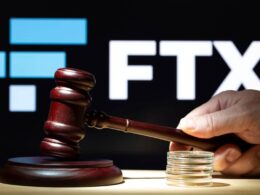“This license would help expand access to our derivatives products by allowing Coinbase to offer them to eligible European customers in select countries across the EU,” the exchange said in a blog post.
Coinbase, the leading cryptocurrency exchange, has announced its plans to introduce crypto-linked derivatives in the European Union (EU) market. In order to facilitate this expansion, Coinbase has entered into an agreement to acquire an undisclosed holding company, which already holds a MiFID II license. The Markets in Financial Instruments Directive (MiFID II) is the EU’s updated regulation that governs financial instruments.
MiFID II and Coinbase’s Expansion
The MiFID II regulation was revised in 2017 to address concerns that it primarily focused on stocks while neglecting other asset classes such as derivatives, fixed income, and currencies. By obtaining the MiFID II license through the acquisition, Coinbase will be able to offer regulated derivatives, including futures and options, to its customers in select EU countries. This move aligns with Coinbase’s longstanding objective of catering to professional and institutional clients.
Importance of Derivatives Trading for Coinbase
Coinbase recognizes the significant role of derivatives trading in the cryptocurrency market, with derivatives accounting for 75% of overall crypto trading volumes. While the company faces competition from dominant players like Binance, Coinbase aims to carve its own space in this crucial battleground. It acknowledges that futures trading, a type of derivative, allows investors to speculate on the future value of an asset but also carries higher risks due to leverage.
“As the industry leader in trusted, compliant products and services, we aim for the highest standards for regulatory compliance, and before operationalizing any license or serving any users, this entity must achieve our Five-point Global Compliance Standard.”
However, Coinbase currently does not offer crypto derivatives products in the United Kingdom due to regulatory restrictions imposed by the Financial Conduct Authority. Nonetheless, the company already provides trading in bitcoin and ether futures in the United States and other markets outside the US.
Coinbase’s International Expansion Efforts
Coinbase’s move into derivatives follows its recent efforts to expand internationally. As it faces regulatory challenges in the US, including a lawsuit from the Securities and Exchange Commission alleging securities law violations, Coinbase is actively pursuing growth opportunities abroad. To establish its presence in the EU, Coinbase has selected Ireland as its primary regulatory base and has applied for a single Markets in Crypto-Assets (MiCA) license to comply with upcoming crypto laws. Coinbase has also obtained a virtual asset service provider license in France, enabling it to offer custody and trading services for crypto assets in the country.
“Our license would help expand access to our derivatives products by allowing Coinbase to offer them to eligible European customers in select countries across the EU.”
Coinbase’s dedication to regulatory compliance is evident in its pursuit of licenses and its commitment to meeting global compliance standards. The acquisition of the MiFID II license marks Coinbase’s first step into derivatives trading within the EU market. However, the completion of the acquisition is subject to regulatory approval, with the expected closing date set for later in 2024.
By broadening its product offering to include derivatives and expanding its international presence, Coinbase aims to position itself as a leading player in the growing crypto derivatives market.
















